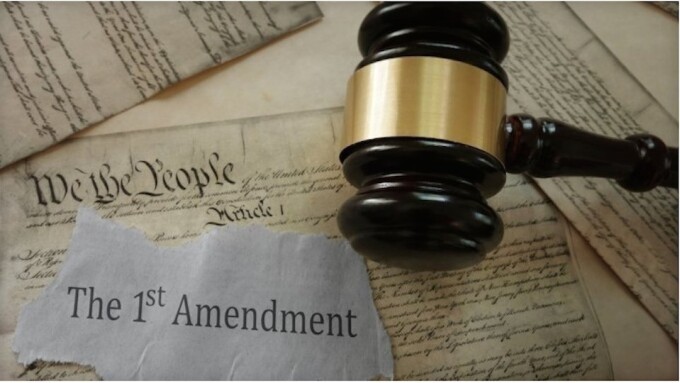PHILADELPHIA — The U.S. Court of Appeals for the 3rd Circuit held a hearing last Thursday concerning the years-long litigation challenging the constitutionality of 18 U.S.C. § 2257, known more commonly in the adult industry as "2257," pitting the Free Speech Coalition (FSC) and the other plaintiffs, the "appellees/cross-appellants," against the U.S. Department of Justice (DOJ).
Assistant U.S. Attorney Anne Murphy argued for the government that the purpose of 2257 is to prevent the use of minors in the production of sexually explicit material. The three-judge panel probed Murphy’s assertion that 2257 was not “over-broad” — one of the cornerstones of the FSC and the others’ challenge to the requirement — asking questions about the possibility that 2257 could be “narrowly tailored” to serve its intended purpose.
Murphy also repeated the government’s position that the original plaintiffs “lacked standing” to file the lawsuit because they are merely “niche players” and not typical of the commercial pornographic industry, which, in the government’s view is mainly focused on young and young-looking performers. Murphy essentially claimed that some plaintiffs were too artsy to be the main targets of 2257.
The attorney for the plaintiffs/appellees, J. Michael Murray, argued that his clients had offered alternative ways of record-keeping that would support the intention of the statute — i.e., keeping minors out of sexually explicit performances — without being “over-broad” and onerous.
Murray repeated the claim that 2257 is “overbroad” and currently covers “the entire universe of sexual images."
The judges then brought up the earlier trial testimony of Dr. Gail Dines, a government expert witness who is a strident anti-porn crusader. Murray retorted that Dines admitted on cross-examination that only about one-third of online porn is “of sexually explicit images as to which one could be confused as to whether or not the person depicted is or is not a minor.”
“In other words, two-thirds of the material are of persons who are obviously adults,” Murray continued.
After a riveting performance on the podium by Murray, court was declared in recess.
The case is being appealed after U.S. District Judge Baylson in Philadelphia gave the FSC and co-plaintiffs a partial victory in August 2018. Baylson found that large parts of 2257 were unconstitutional on First Amendment grounds. The plaintiffs had also obtained an earlier victory on Fourth Amendment grounds from a 3rd U.S. Circuit ruling.
The Justice Department appealed Baylson’s final judgment and decree late last year. The DOJ filed their brief on March 27. On April 26, FSC attorney Murray filed a response alleging that the plaintiffs’ partial August victory was, in fact, incomplete — Judge Baylson had upheld two provisions — since given that 2257 “failed the narrow tailoring and least restrictive means components of strict scrutiny,” the lower court “erred in not striking down the Statutes in their entirety.”
The Justice Department filed their own reply to the April 26 response earlier this month. On June 28, attorneys for the FSC and other appellants filed another response.
As the FSC has previously explained, the 2257 requirements — i.e., anyone who films sexual content must "maintain and keep detailed records and IDs of the persons depicted in the film, cross-referenced in files, with dates of production, nicknames and copies of the movies,” etc. — do not achieve their stated goal.
“This isn’t about keeping minors out of adult film,” the FSC website explains to newer producers. “The industry is already incredibly stringent about age-verification, as the production of child pornography is not only morally and ethically despicable, it also carries a mandatory minimum of fifteen years in prison. A record-keeping requirement means nothing to a child pornographer. But for legitimate producers, the burdensome and byzantine requirements create numerous ways for producers to be prosecuted and harassed by law enforcement, that have nothing to do with the age of performers.”







